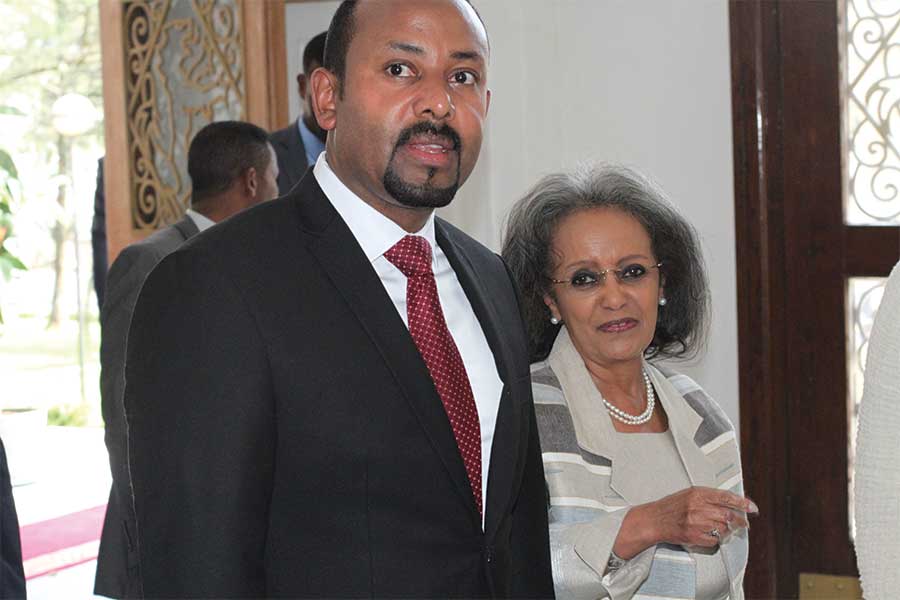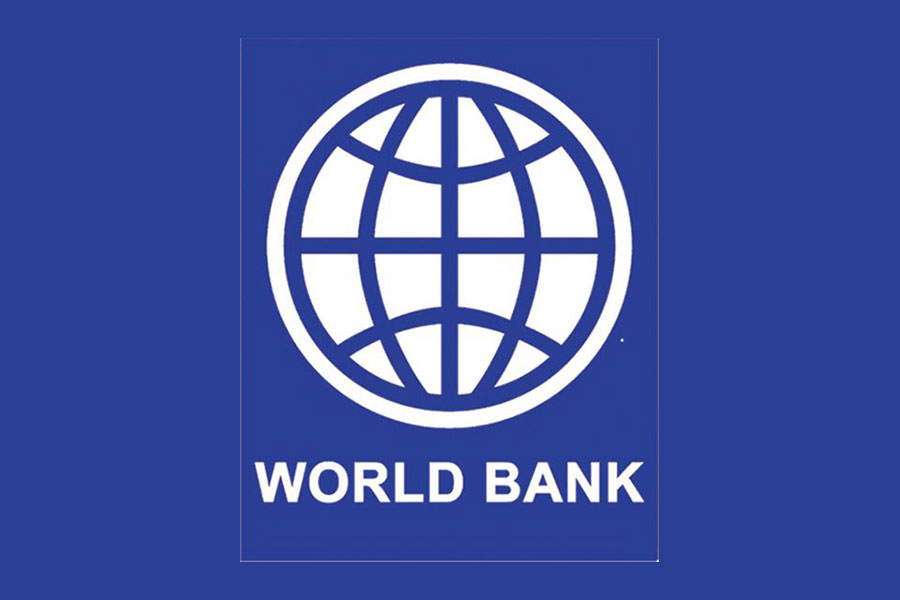
Radar | Oct 12,2019
Dec 17 , 2022
By Hippolyte Fofack
Several African countries have enough raw materials to produce the fertilizers needed to meet growing regional (and global) demand. Expanding production capacity will promote the commodity-based industrialization model, which will also help diversify Africa's sources of growth, reducing the continent's unhealthy dependence on commodity-price cycles and strengthening its resilience to global shocks, writes Hippolyte Fofack, chief economist and director of research at the African Export-Import Bank (Afreximbank).
Despite containing 60pc of the world's uncultivated arable land, Africa has been a net food importer for decades. According to the most recent estimates, food imports are the biggest budget item for many countries across the continent. Amid surging food prices and an appreciating US dollar, Africa's food bill has soared, undermining African countries' economic growth, debt sustainability, and political stability.
According to the Brookings Institution, Africa spent around 43 billion dollars on food imports in 2019. Due to the current inflationary environment, most recent estimates are probably higher, especially in a region where high import dependence exacerbates the pass-through from global to local food prices. The soaring dollar, driven by the Federal Reserve's interest-rate hikes, has depleted African countries' hard-earned foreign-exchange reserves and led to sharp increases in their debt-servicing costs, heightening the risk of a continent-wide insolvency crisis.
At the same time, the supply-chain disruptions caused by the COVID-19 pandemic and exacerbated by the war in Ukraine have highlighted the potential costs of Africa's reliance on food imports. Food security is, after all, national security. African countries have learned this the hard way over the past two and a half years, as supply-chain bottlenecks and protectionist policies have reduced access to vital agricultural commodities and led to dramatic price increases.
Earlier this year, the price of wheat futures at the Chicago Board of Trade reached a record of 14.25 for a bushel, almost double the price in late December 2021. Fertilizer prices have also increased sharply, as the average prices for major variants (including diammonium phosphate, triple superphosphate, urea, and potassium chloride) more than doubled year-on-year. Overall, the World Trade Organization's (WTO) fertilizer-price index rose by more than 100pc between the first quarter of 2021 and the first quarter of this year.
Although Russia and Ukraine account for less than three percent of global trade and around 1.7pc of total African trade, both have served as the world's – and Africa's – main source of wheat and fertiliser. The two countries supplied 24pc of globally traded wheat in 2020. And according to WTO estimates, they accounted for 30pc of the continent's total wheat imports in the lead-up to the outbreak of the war.
Heightened geopolitical tensions have stoked fears that the current supply-chain disruptions will become a more prominent – and permanent – risk, leading countries to embrace industrial policies and accelerate the shift to sustainable, self-reliant food systems. The United States, for instance, has introduced policies aimed at reshoring the production of automobiles, semiconductors, and other manufactured goods.
Similarly, many African governments have increased efforts to achieve self-sufficiency in food production. Policymakers hope that the African Continental Free Trade Area (ACFTA), established in 2018, can provide the economies of scale and productivity gains needed to boost domestic food production and reduce the region's vulnerability to external shocks.
Egypt, which in 2021 relied on both Russia and Ukraine for almost 77pc of total wheat imports, is a case in point. Its government has provided fiscal incentives, including raising procurement prices, to increase domestic wheat production enough to meet at least 70pc of domestic consumption. Preliminary estimates of the effectiveness of such policies seem promising, with some forecasts showing that Africa is set to produce 30.5 million tons of wheat this fiscal year, an increase of more than 18pc from 2021.
The same goes for fertilizers. Before the war in Ukraine, countries such as Ghana, Ivory Coast, and Mauritania imported 20pc-50pc of their fertilizers from Russia. This dependence on imports has stifled domestic agriculture; while global fertilizer use averaged 137Kg per hectare, the average across Africa was a dismal 20Kg per hectare in 2018.
But African businesses and governments have since taken steps to expand domestic production. For example, the industrial conglomerate Dangote Group opened the world's second-largest production facility earlier this year in Lagos, Nigeria. The new facility is expected to produce three million metric tons of low-cost, nitrogen-based urea. The Dangote Group is also building another Nigerian plant near Port Harcourt.
And in Morocco, the state-owned OCP Group is working with other African governments and financial institutions to build fertiliser plants across the continent. Next year, OCP plans to begin building a 2.4 billion dollars fertilizer facility that will employ Ethiopian natural gas.
The success of these import-substitution policies will have significant implications for the region. Several African countries have enough raw materials to produce the fertilizers needed to meet growing regional (and global) demand. Expanding production capacity will promote the commodity-based industrialization model, which will also help diversify Africa's sources of growth, reducing the continent's unhealthy dependence on commodity-price cycles and strengthening its resilience to global shocks.
Given Africa's projected population growth, agriculture and agribusiness could become growth industries, creating jobs in regions where unemployment has been chronically high for decades and accelerating the continent's economic transformation. The growth of agribusinesses and rising fertilizer production will also boost productivity and reduce post-harvest losses.
Raising African farmers' yields and boosting agricultural productivity is crucial to achieving self-sufficiency in food production. These policies will also close large and growing holes in most countries' balance of payments, strengthen macroeconomic stability, and put the region on a path toward fiscal health and increased debt sustainability.
But Africa must aim higher. The continent has the land and climate needed to become the world's breadbasket – and a geopolitical force to be reckoned with.
PUBLISHED ON
Dec 17,2022 [ VOL
23 , NO
1181]


Radar | Oct 12,2019

Commentaries | Jun 17,2023

Radar | Sep 19,2020

Fortune News | Jan 29,2022

Fortune News | Oct 12,2019

Featured | Sep 18,2021

Radar | Sep 08,2024

Radar | Jun 25,2022

Viewpoints | Jul 18,2020

Editorial | Jun 10,2023

My Opinion | 131970 Views | Aug 14,2021

My Opinion | 128359 Views | Aug 21,2021

My Opinion | 126297 Views | Sep 10,2021

My Opinion | 123912 Views | Aug 07,2021

Dec 22 , 2024 . By TIZITA SHEWAFERAW
Charged with transforming colossal state-owned enterprises into modern and competitiv...

Aug 18 , 2024 . By AKSAH ITALO
Although predictable Yonas Zerihun's job in the ride-hailing service is not immune to...

Jul 28 , 2024 . By TIZITA SHEWAFERAW
Unhabitual, perhaps too many, Samuel Gebreyohannes, 38, used to occasionally enjoy a couple of beers at breakfast. However, he recently swit...

Jul 13 , 2024 . By AKSAH ITALO
Investors who rely on tractors, trucks, and field vehicles for commuting, transporting commodities, and f...

Jul 5 , 2025
Six years ago, Ethiopia was the darling of international liberal commentators. A year...

Jun 28 , 2025
Meseret Damtie, the assertive auditor general, has never been shy about naming names...

Jun 21 , 2025
A well-worn adage says, “Budget is not destiny, but it is direction.” Examining t...

Jun 14 , 2025
Yet again, the Horn of Africa is bracing for trouble. A region already frayed by wars...

Jul 6 , 2025 . By BEZAWIT HULUAGER
The federal legislature gave Prime Minister Abiy Ahmed (PhD) what he wanted: a 1.9 tr...

Jul 6 , 2025 . By YITBAREK GETACHEW
In a city rising skyward at breakneck speed, a reckoning has arrived. Authorities in...

Jul 6 , 2025 . By NAHOM AYELE
A landmark directive from the Ministry of Finance signals a paradigm shift in the cou...

Jul 6 , 2025 . By NAHOM AYELE
Awash Bank has announced plans to establish a dedicated investment banking subsidiary...